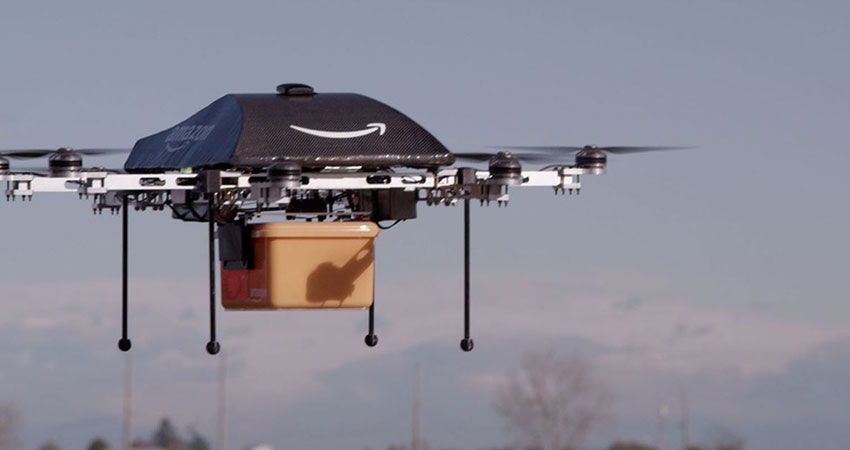Amazon has received approval from the Federal Aviation Administration to operate its delivery drones beyond visual line of sight of the pilot, removing a key roadblock to its eventual goal of deploying aerial fulfillment for Prime customers in less than a half hour.
The certification under part 135 of the FAA regulations will enable Amazon to “safely and efficiently deliver packages to customers” according to CNBC. The company is continuing to test and refine the technology.
“This certification is an important step forward for Prime Air and indicates the FAA’s confidence in Amazon’s operating and safety procedures for an autonomous drone delivery service that will one day deliver packages to our customers around the world,” said David Carbon, vice president of Prime Air, in a statement to CNBC.
Amazon first began testing drones for package delivery in 2013, and submitted its FAA application in 2019, saying it would focus operations on areas with low population density. Also last year, during a company conference Amazon demonstrated a drone that can carry packages weighing less than 5 pounds up to 15 miles, delivering it in less than a half hour.
Two other applicants have received part 135 approval from the FAA: UPS’s Flight Forward program, which conducted the first successful drone delivery of medicine in September 2019 in Raleigh, NC; and Wing Aviation, a project of Google parent Alphabet. Five additional applications are under review.
Earlier this year Flytrex, an Israeli technology company that developed a drone platform, began delivering orders by drone from a Walmart in Grand Forks, ND to a drop zone in a neighborhood nearby, using line-of-sight navigation along a single path. The company has been running deliveries in Iceland for a couple years.
In an interesting twist, the Department of Transportation approved 10 public-private drone test projects in 2018 including Google’s Wing, but not Amazon Prime Air. More recently, the Department of Defense reopened the JEDI cloud computing bidding after Amazon filed a lawsuit claiming political bias when Microsoft was awarded the contract in October 2019. A final decision is expected in mid-September.

